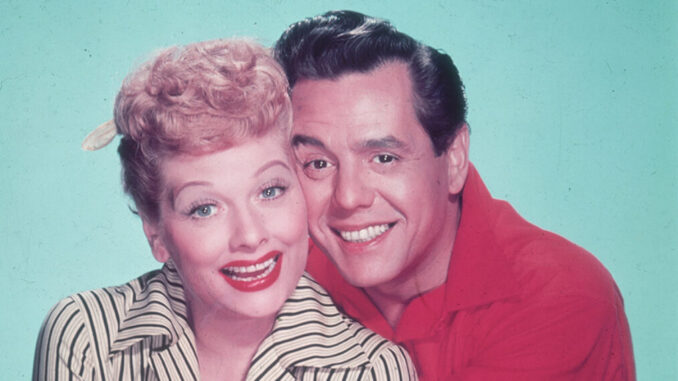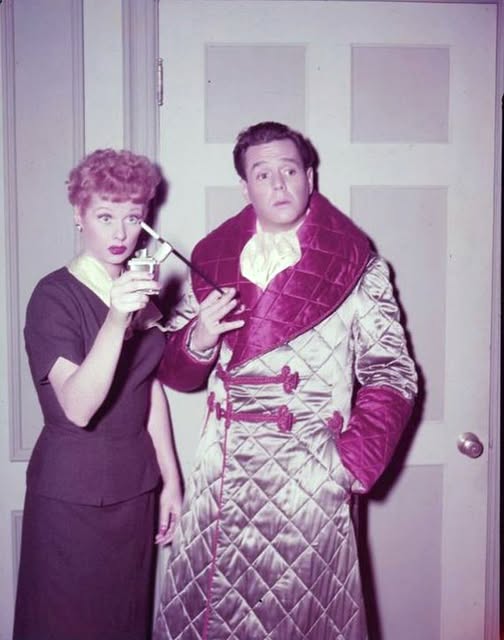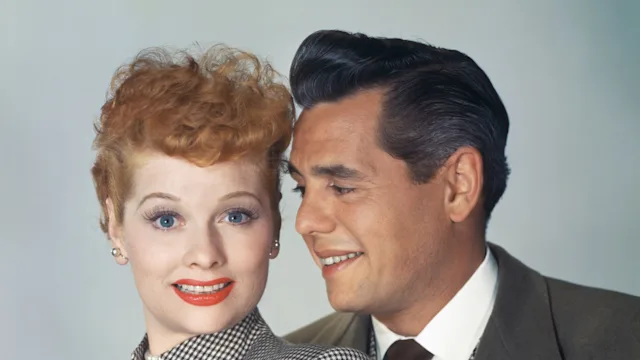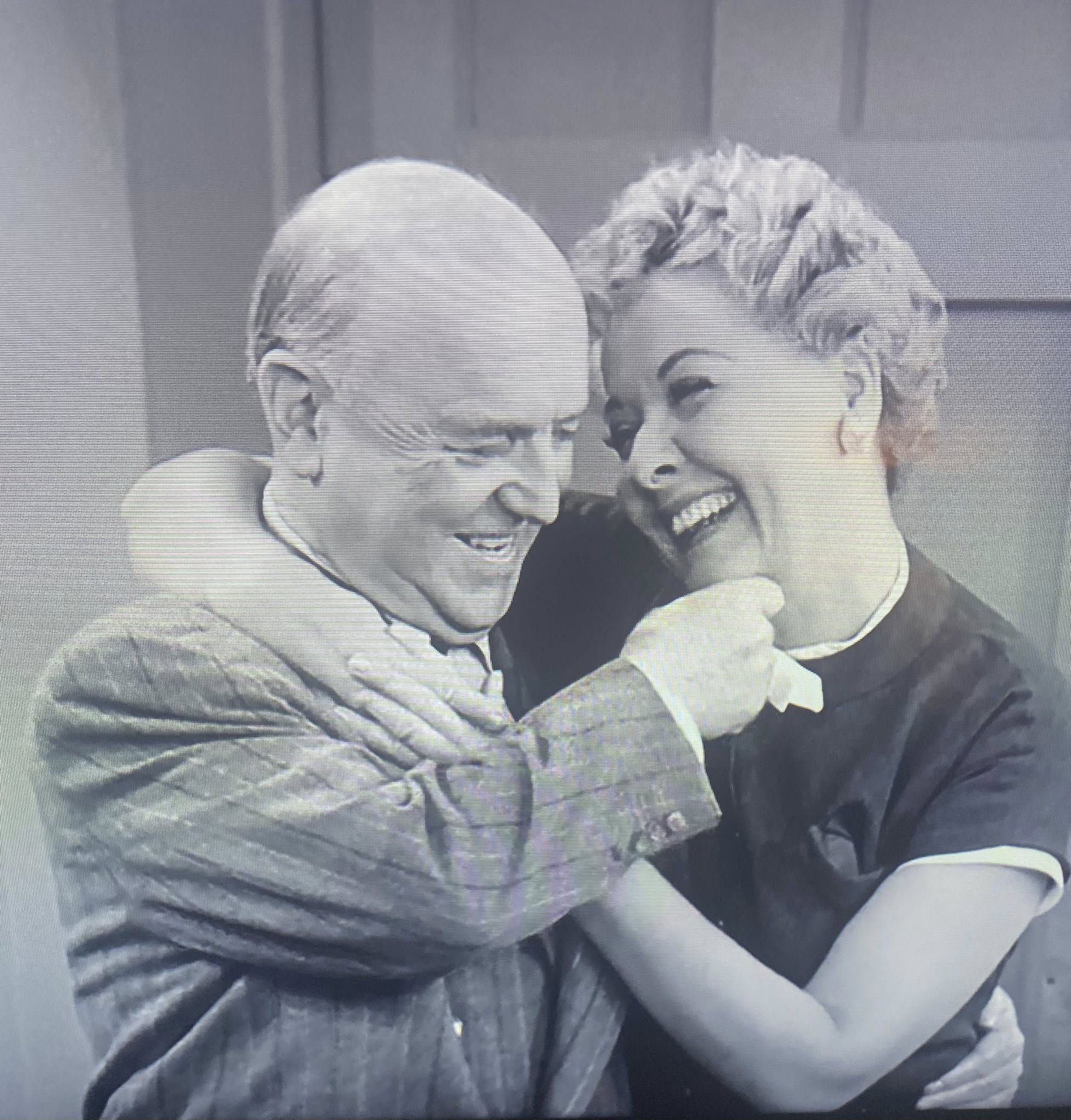
Lucille Ball, the legendary queen of comedy, has been a beloved figure in television history for decades. From her groundbreaking work on I Love Lucy to her influence on generations of comedians, Ball’s life and career have fascinated fans worldwide. Yet behind the laughter, there were intriguing dynamics and hidden stories that many viewers never knew—particularly concerning her relationships with her co-stars. One such story involves a secret tension that developed during the filming of the iconic series, a revelation that has only recently come to light and has left fans stunned.
The Legendary Partnership on ‘I Love Lucy’
Lucille Ball’s chemistry with Desi Arnaz is legendary. Together, they created one of the most beloved television partnerships of all time. However, it wasn’t just Desi who shared the screen with Ball; the ensemble cast, including Vivian Vance (Ethel Mertz) and William Frawley (Fred Mertz), played crucial roles in shaping the show’s dynamic. While fans have long admired their on-screen camaraderie, the behind-the-scenes story was far more complex.
Vivian Vance, in particular, shared countless memorable moments with Ball as the witty and lovable Ethel Mertz. However, the off-screen relationship between Ball and Vance had its challenges. Reports from cast interviews, biographies, and memoirs reveal that while the pair were professional and shared mutual respect, there were moments of friction and unspoken tension. These moments were never publicized at the time, allowing the show to maintain its image of seamless comedy and chemistry.
The Hidden Tension
The tension primarily arose from differences in recognition, career ambitions, and working conditions. Lucille Ball, as the star and producer, wielded significant creative control over the show, making crucial decisions about scripts, schedules, and casting. Vivian Vance, despite her incredible talent and integral role, often felt overshadowed by Ball’s larger-than-life presence and influence.
According to some accounts, Vance occasionally experienced frustration over the disparity in screen time and pay, issues that were common in early television but were especially pronounced in a show as pioneering as I Love Lucy. Ball, while highly protective of the show’s quality and success, was sometimes unaware of how her decisions affected her co-stars personally.
A Complicated Friendship
Despite moments of tension, Ball and Vance maintained a professional relationship that endured the show’s entire run. Interviews with Vivian Vance later in life reveal that while she occasionally felt sidelined, she admired Ball’s talent, drive, and dedication. The two shared a bond forged through years of working together under the pressures of a groundbreaking television series, and by the end of the show, their respect for one another had solidified into a complicated but enduring friendship.
Fans today are often surprised to learn that even in such a beloved show, not everything was smooth behind the scenes. The dynamic between Ball and Vance serves as a reminder that even legendary collaborations can have layers of complexity, tension, and human emotion.
Impact on Television and Female Partnerships
The secret tensions and professional challenges faced by Ball and her co-stars highlight the obstacles women encountered in early television. Lucille Ball’s position as both star and producer was virtually unprecedented at the time, and her ability to navigate this dual role paved the way for future generations of female comedians and producers. However, the pressures of maintaining control, ensuring the show’s success, and balancing personal relationships inevitably led to friction, even among talented co-stars.
This behind-the-scenes story has become particularly relevant as modern audiences explore the hidden struggles of iconic performers. Understanding that even the most seamless on-screen partnerships involved personal and professional negotiation adds depth to how fans perceive the history of television comedy.
Revelations from Biographies and Interviews
Biographers and television historians have pieced together accounts from cast and crew members, revealing small anecdotes that hint at underlying tensions. For instance, while Ball and Vance were known to exchange playful banter on set, crew members recall moments of frustration and subtle disagreements over lines or scenes. These incidents were rarely documented publicly, ensuring the public’s perception remained focused on the humor and charm that made I Love Lucy a timeless classic.
Lucille Ball herself, known for her professionalism and commitment, rarely commented on any negative dynamics with co-stars in interviews. She was fiercely protective of the show’s image and her colleagues, making it clear that preserving the magic of I Love Lucy was always a priority over airing personal grievances.
Fan Reactions to the Revelation
When this story resurfaced in interviews and retrospective articles, fans were both shocked and fascinated. Social media forums and fan communities erupted with discussions about how such a tension could exist behind one of the most beloved shows in television history. Many viewers expressed admiration for the professionalism of both Ball and Vance, noting that their ability to maintain on-screen chemistry despite personal challenges is a testament to their skill and dedication.
Some fans also drew parallels to modern television productions, recognizing that even today, tensions between co-stars are common, particularly in high-pressure environments with creative differences and unequal recognition. The revelation adds a new layer of appreciation for the sacrifices and effort required to create iconic television moments.
Legacy Beyond the Tension
Ultimately, the story of Lucille Ball and Vivian Vance reminds us that legendary collaborations are often built on both harmony and conflict. Their combined talent brought laughter and joy to millions of viewers, and any behind-the-scenes tension does not diminish the impact of their work. Instead, it humanizes these iconic figures, showing that even legends had their struggles, insecurities, and disagreements.
Lucille Ball’s pioneering career as an actress, comedian, and producer continues to inspire generations. Vivian Vance’s contributions as a co-star and comedic partner remain equally celebrated. The interplay of these two remarkable women, both on and off-screen, exemplifies the complex dynamics that can exist in creative partnerships and serves as a valuable lesson in professionalism, resilience, and mutual respect.
Conclusion
The revelation of hidden tension between Lucille Ball and her co-star Vivian Vance adds a fascinating new dimension to the legacy of I Love Lucy. Fans who grew up watching the show may be surprised to learn about the challenges behind the scenes, yet the story ultimately underscores the dedication, talent, and professionalism required to produce television magic.
Even with occasional friction, Ball and Vance’s partnership endured, delivering timeless comedy that continues to entertain audiences more than half a century later. Their story is a reminder that the greatest creative achievements often emerge not despite challenges, but because of the commitment and resilience of the people behind them.
For fans, this shocking secret offers a deeper appreciation for the brilliance of Lucille Ball and her co-stars, revealing the complexities, sacrifices, and triumphs that made I Love Lucy a true television legend.


